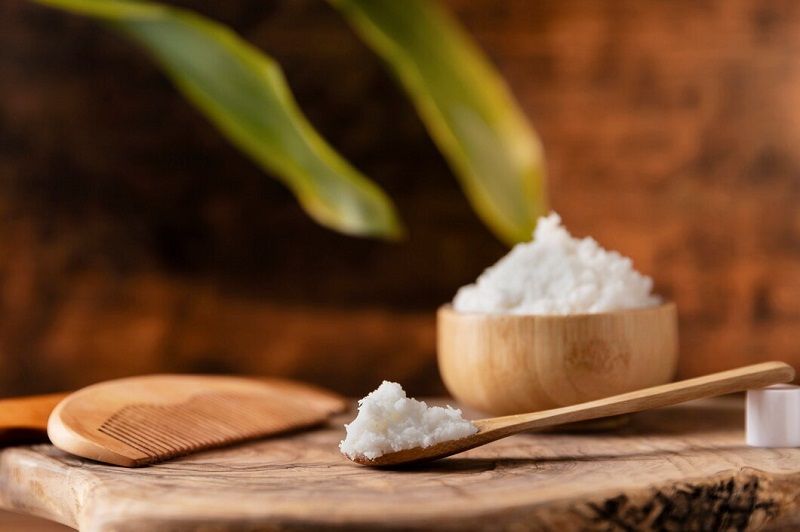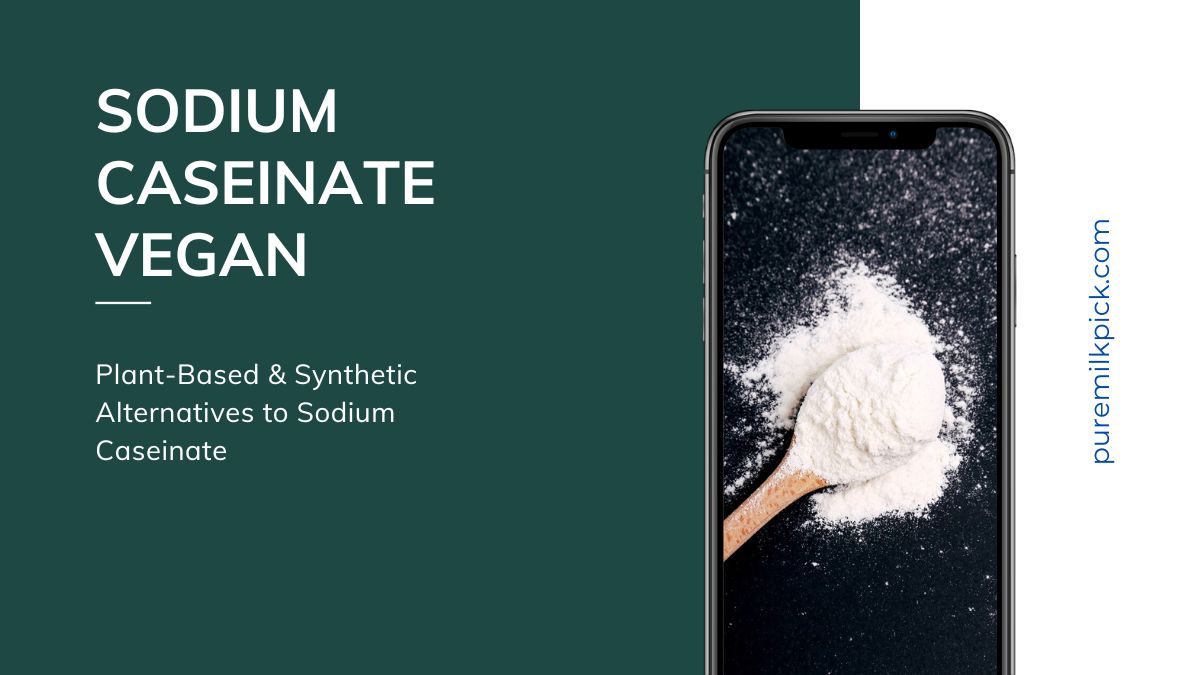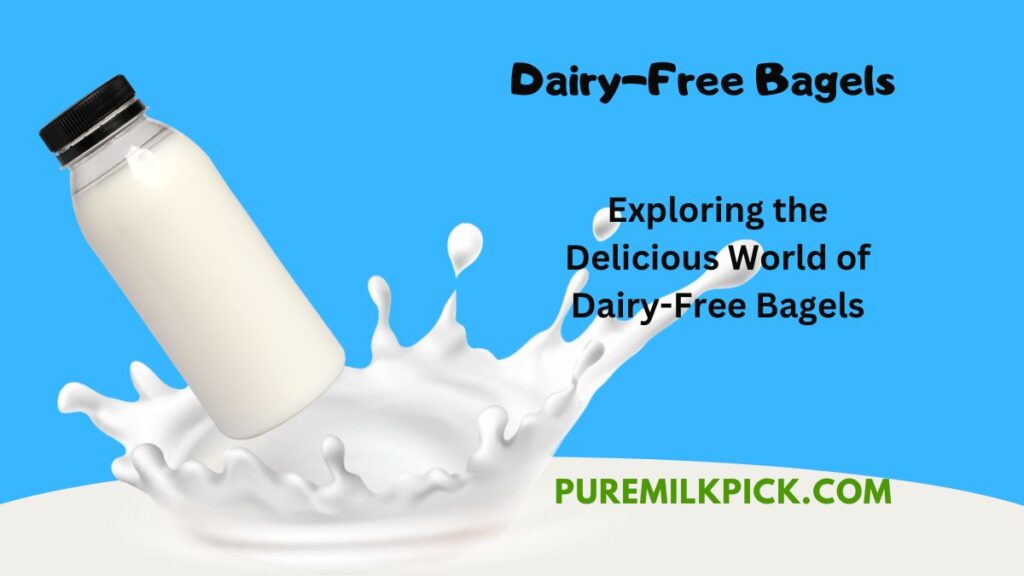Sodium Caseinate, a form of casein, is a protein derived from the milk of mammals. It is extensively used in the food industry due to its emulsifying properties, and ability to stabilize foams and improve texture. However, as a derivative of milk, it is not suitable for vegans.
Veganism represents more than just a diet, it stands as a lifestyle choice that vehemently opposes the exploitation of animals. This includes the avoidance of all animal-derived products, whether in food, clothing, or any other use. Adherents of veganism actively seek plant-based or synthetic alternatives to traditional animal-based products.
In alignment with vegan principles, the search for alternatives to sodium caseinate is crucial. These alternatives should ideally mimic the beneficial properties of sodium caseinate, providing the same texture and taste to food products, without the use of any animal-derived ingredients. The following sections will delve into some of the most promising vegan alternatives to sodium caseinate.
Understanding Sodium Caseinate
Before we delve into alternatives, it’s important to gain a deeper understanding of Sodium Caseinate.
What is Sodium Caseinate?
Sodium Caseinate, a milk protein, is a sodium salt derived from the casein present in mammalian milk. It’s known for its protein content and its ability to provide a creamy texture in food products, making it a favorable ingredient in the food industry.
Common Uses in the Food Industry
Sodium Caseinate is extensively used in a variety of foods due to its functional properties. It is commonly found in non-dairy creamers, infant formula, processed cheese, and meat products to improve texture and flavor. It also acts as an emulsifier, helping mix ingredients that would normally separate, such as oil and water.
Why Sodium Caseinate Might Be Non-Vegan
Despite its widespread use, Sodium Caseinate is not suitable for those following a vegan lifestyle. As it is derived from milk, a product of animal origin, it contradicts the vegan philosophy of avoiding animal exploitation. Consequently, vegans must seek suitable alternatives that align with their dietary principles.
Read More: Lactose-Free Ricotta: A Comprehensive Guide and DIY Recipe
Exploring Vegan Alternatives to Sodium Caseinate
When it comes to finding vegan alternatives to sodium caseinate, the focus is on ingredients that can mimic its functional properties, such as the ability to emulsify and improve texture in food products.
Plant-Based Alternatives
In the quest for vegan alternatives to sodium caseinate, plant-based proteins emerge as the most viable options given their similar functional properties. Here are some of the most promising alternatives:
Soy Protein
Soy protein is derived from soybeans, a species of legume native to East Asia. It packs a powerful protein punch and is often used to replace animal proteins in an array of food products due to its nutritional composition and versatility. Like sodium caseinate, it can effectively stabilize foams and emulsions, making it a suitable vegan alternative.
Pea Protein
Pea protein, extracted from the yellow pea, is another plant-based protein that can mimic the properties of sodium caseinate. It is hypoallergenic, easily digestible, and cholesterol-free, making it a popular choice in plant-based food products. Its ability to gel and emulsify can provide a creamy texture similar to that offered by sodium caseinate.

Almond Milk-Based Protein
Almond milk-based protein, extracted from almonds, is another potential plant-based alternative. It offers a rich, creamy texture and a subtle, nutty flavor that can enhance the taste of food products. While it does not emulsify as strongly as sodium caseinate, it can still provide a satisfying texture and is a great option for those looking for a vegan, lactose-free alternative.
Synthetic Alternatives
While plant-based proteins offer a viable alternative to sodium caseinate, scientific advancement in food technology has paved the way for the creation of synthetic alternatives. These lab-created proteins can mimic the beneficial properties of sodium caseinate without involving any animal-derived ingredients.
Emerging Technologies in Food Production
Cutting-edge technologies in food production, such as fermentation and tissue engineering, have opened up new possibilities for creating synthetic alternatives to animal-derived proteins. These technologies can produce proteins that have similar structural and nutritional properties to their animal-derived counterparts, making them suitable vegan alternatives to sodium caseinate.
Laboratory-Created Proteins
Lab-created proteins, produced by microorganisms through bio-fermentation, can effectively mimic the properties of sodium caseinate. These proteins can provide the same texture and taste as sodium caseinate, making them ideal for use in a variety of food products.
Comparison of Nutritional Value and Functional Properties
When comparing plant-based and synthetic proteins with sodium caseinate, it’s important to note that while they may mimic their functional properties, there may be differences in their nutritional value. For instance, while soy protein and pea protein are rich in essential amino acids, they may not provide the same amount of protein per serving as sodium caseinate. Similarly, lab-created proteins may lack certain nutrients found in animal-based proteins. However, the advantages of these alternatives, such as being cruelty-free and environmentally friendly, make them a worthy consideration for those following a vegan lifestyle.
Challenges and Considerations
When transitioning from sodium caseinate to its vegan alternatives, there are several challenges and considerations to take into account.
Taste and Texture Differences
While plant-based and synthetic proteins can mimic the functional properties of sodium caseinate, there may be differences in taste and texture. For instance, pea protein may have a slightly earthy taste, and soy protein might not provide the same creamy texture as sodium caseinate. Addressing these differences requires research and development to fine-tune the formulation of food products.
Allergen Concerns and Labeling
In comparison to sodium caseinate, certain alternatives like soy protein and almond milk-based protein can cause allergic reactions in some individuals. Therefore, proper allergen labeling and clear communication to consumers is essential to ensure safety.
Availability and Cost Factors
The availability and cost of vegan alternatives to sodium caseinate also pose significant challenges. Synthetic proteins, for instance, may not be as readily available as plant-based proteins and could be more expensive due to the complex production processes involved. Additionally, sourcing plant-based proteins may also pose challenges due to fluctuations in crop yields, which can impact both availability and cost.

The Future of Sodium Caseinate Alternatives
The future of sodium caseinate alternatives looks promising as more and more consumers opt for vegan and plant-based diets. The growing demand combined with advancements in food technology is driving the quest for suitable substitutes that can effectively mimic the functional properties of sodium caseinate.
Technological Advancements in Vegan Protein Production
In the realm of vegan protein production, technology is the key driver. Innovations in food processing technology are enabling the creation of plant-based and synthetic proteins that can mimic the nutritional and functional properties of animal-derived proteins like sodium caseinate. Bio-fermentation and tissue engineering are two such technologies that have opened up new possibilities in vegan protein production. As these technologies mature, we can expect to see a greater variety of alternatives to sodium caseinate in the market.
Consumer Demand and Industry Response
The shift towards vegan and plant-based diets is largely consumer-driven. Health consciousness, ethical considerations, and environmental concerns are the primary drivers of this shift. In response to this demand, the food industry is innovating at a rapid pace, introducing a plethora of plant-based and synthetic alternatives to animal-derived ingredients. As more consumers demand vegan products, the industry will continue to respond with innovative solutions.
Potential Impact on the Food Industry and Market Trends
The growing popularity of sodium caseinate alternatives has the potential to significantly impact the food industry and shift market trends. As demand for vegan food products grows, manufacturers who are able to offer high-quality, cost-effective alternatives to animal-derived ingredients like sodium caseinate will likely gain a competitive edge. Moreover, the increased focus on sustainability and ethical sourcing in the food industry may encourage more manufacturers to opt for plant-based or synthetic alternatives, influencing market trends and shaping the future of food production.
Conclusion
In conclusion, the evolution of food production technology and the increasing consumer demand for vegan and plant-based diets are pushing the boundaries of alternative protein sources. Sodium caseinate, while offering valuable functional and nutritional properties, is being challenged by a range of plant-based and synthetic alternatives. These alternatives, while not yet perfect replicas, are steadily improving in flavor, texture, and nutritional content, thanks to technological advancements and extensive research. However, the successful implementation of these alternatives depends on overcoming challenges related to allergenicity, cost, and availability. Nevertheless, the future looks promising. As consumer demand for vegan products continues to rise, the food industry is likely to respond with innovative, sustainable, and ethical solutions, potentially reshaping the landscape of food production.
Frequently Asked Questions
Vegan alternatives to sodium caseinate include plant-based proteins such as soy and pea protein, as well as lab-created proteins. Although they may not provide the exact nutritional content as sodium caseinate, they are cruelty-free and environmentally friendly, making them appealing to vegans and those pursuing a plant-based diet.
The taste and texture of sodium caseinate alternatives can vary. For example, pea protein may have a slightly earthy taste, and soy protein might not provide the same creamy texture as sodium caseinate. Addressing these differences often requires further research and development.
Certain alternatives like soy protein and almond milk-based protein can cause allergic reactions in some individuals. Therefore, it is crucial to ensure proper allergen labeling and clear communication to consumers about the ingredients in food products.



